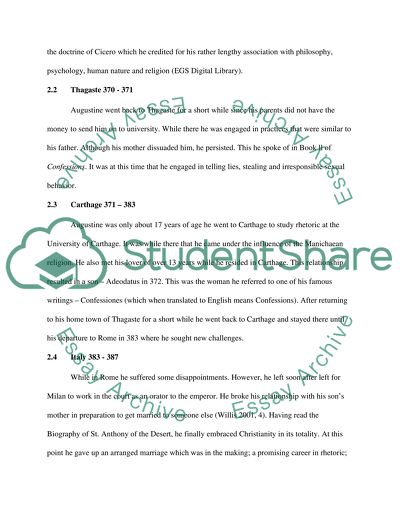Cite this document
(“The Impact of St. Augustine's Life Research Paper”, n.d.)
Retrieved de https://studentshare.org/religion-and-theology/1401504-the-life-and-confessions-of-augustine
Retrieved de https://studentshare.org/religion-and-theology/1401504-the-life-and-confessions-of-augustine
(The Impact of St. Augustine'S Life Research Paper)
https://studentshare.org/religion-and-theology/1401504-the-life-and-confessions-of-augustine.
https://studentshare.org/religion-and-theology/1401504-the-life-and-confessions-of-augustine.
“The Impact of St. Augustine'S Life Research Paper”, n.d. https://studentshare.org/religion-and-theology/1401504-the-life-and-confessions-of-augustine.


